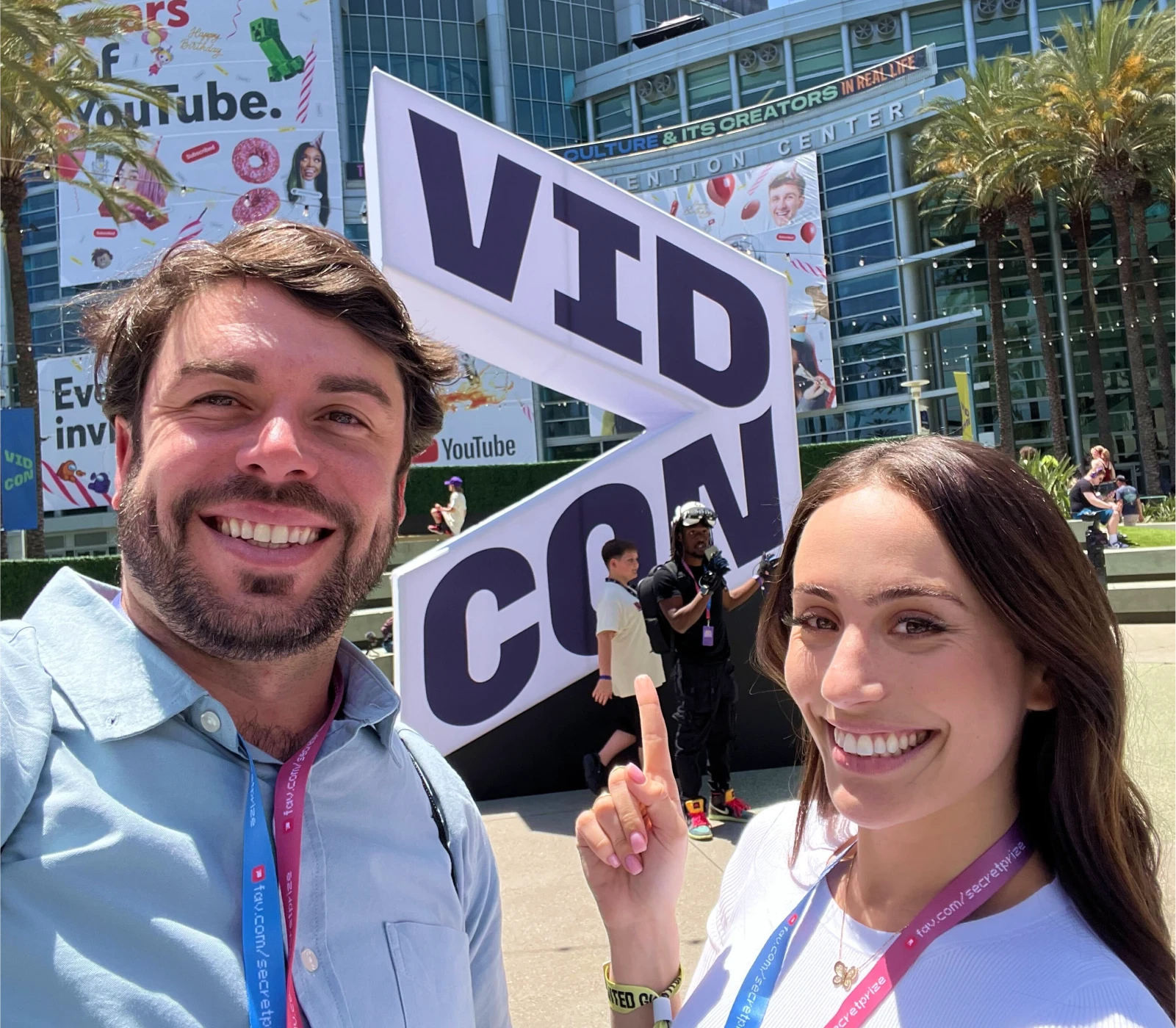
1. Merch is still king of the product conversations
2. Creators are still obsessed with physical products.
We expected to hear about membership sites, AI-powered tools, and digital product strategies. Instead, and this is not an exaggeration, we heard more conversations about creator making comics than developing software.
Now, don't get us wrong, even though we pick fights with merch companies (hi James!), there's absolutely a place for physical products in the creator economy (and I've written about both the challenges and opportunities). But the enthusiasm for tangible goods over digital ones caught us off guard.
I think there are a few things driving this:
Familiarity plays a huge role. Most creators understand what it means to design a t-shirt or create a book. Software feels abstract and intimidating. There's something compelling about being able to hold your product in your hands, show it to friends, and see it on a shelf.
The marketing feels more straightforward. "I made a thing, you can buy it and put it on your body / shelf / wall" is a much simpler pitch than explaining the value of a software platform or digital community.
Success stories are easier to spot. When a creator launches a successful physical product, it's visible. When they launch a successful software product, it often flies under the radar of other creators.
But what weI kept thinking about during these conversations is something you probably know if you read this newsletter, as we've covered the math extensively. The economics of digital products are just... better. Lower marginal costs, higher profit margins, and no inventory headaches.
I'm hopeful that over the next few years, as more creators see the success of digital-first businesses, this balance will shift.
But damn, are there some cool niche opportunities
My second big takeaway was how many incredible software opportunities are hiding in plain sight.
Creators often lack the product development expertise to recognize when they're sitting on a potential banger of a business. They see their content as the product, when sometime a tool that could improve their process or methodology could become the real business.
Perfect example; we talked with a channel that has a relatively solid licensing business, but the operating costs of running that business make the economics almost more of a hassle than it is worth. But with a nice little micro-software product to streamline it, they could make way better margins…and so could the hundreds of other channels in their space.
I had dozens of similar conversations. A fitness creator who's developed a unique approach to workout programming that could be sold to other trainers. A cooking channel with a shot planning system that other creators would pay for.
These aren't content ideas, which is why so many creators miss them…they're business opportunities. But they require a different lens to recognize and develop, and we think more and more creator businesses will start to identify and capitalize on them.
The pre-handshake intro has changed
The third thing we noticed was more subtle but potentially more important? The standard opening question at creator events is evolving.
For years, the standard opener when meeting a creator was: "What kind of content do you make?"
But we found ourselves unconsciously asking something different: "What kind of business are you in?" or "What is your business?"
And we weren't the only one. This shift is happening across conversations (at least the ones we eavesdropped on).
Creators are increasingly thinking of themselves as business owners who happen to use content as their primary marketing channel, rather than content creators who occasionally sell things.
This mindset change is huge because it opens up entirely different strategic conversations:
"How do I get more views?" becomes "How do I build sustainable revenue?"
"What should my next video be about?" becomes "What problems can I solve for my audience?"
"How do I grow my following?" becomes "How do I convert my audience into customers?"
This isn't just a semantic change. It represents a legit shift in how creators approach their work, and it's one of the most encouraging trends I've seen in the industry.
Cool story, bro
VidCon gave us a interesting snapshot of where the creator economy sits right now.
Creators are definitely thinking more and more like business owners, which is fantastic. They're diversifying revenue streams and approaching their work with real strategic intention.
But there's still a gap between recognizing business opportunities and executing on the most advantageous ones. Physical products feel safer and more familiar, even when digital solutions might be more profitable.
The creators who figure out how to bridge this gap, who can combine entrepreneurial thinking with the economic advantages of digital products, are going to build something special.
TRUST US ON IT!



















